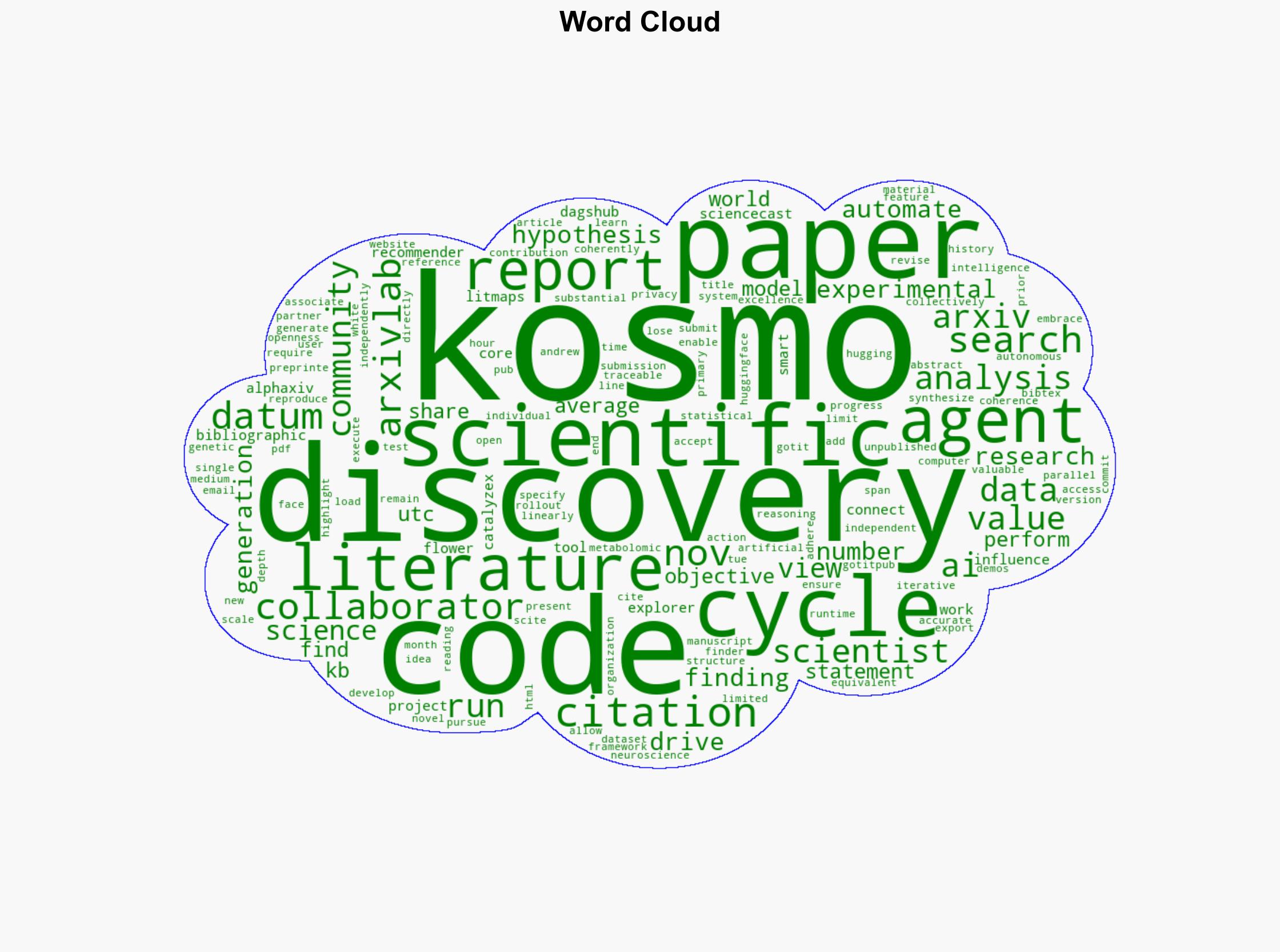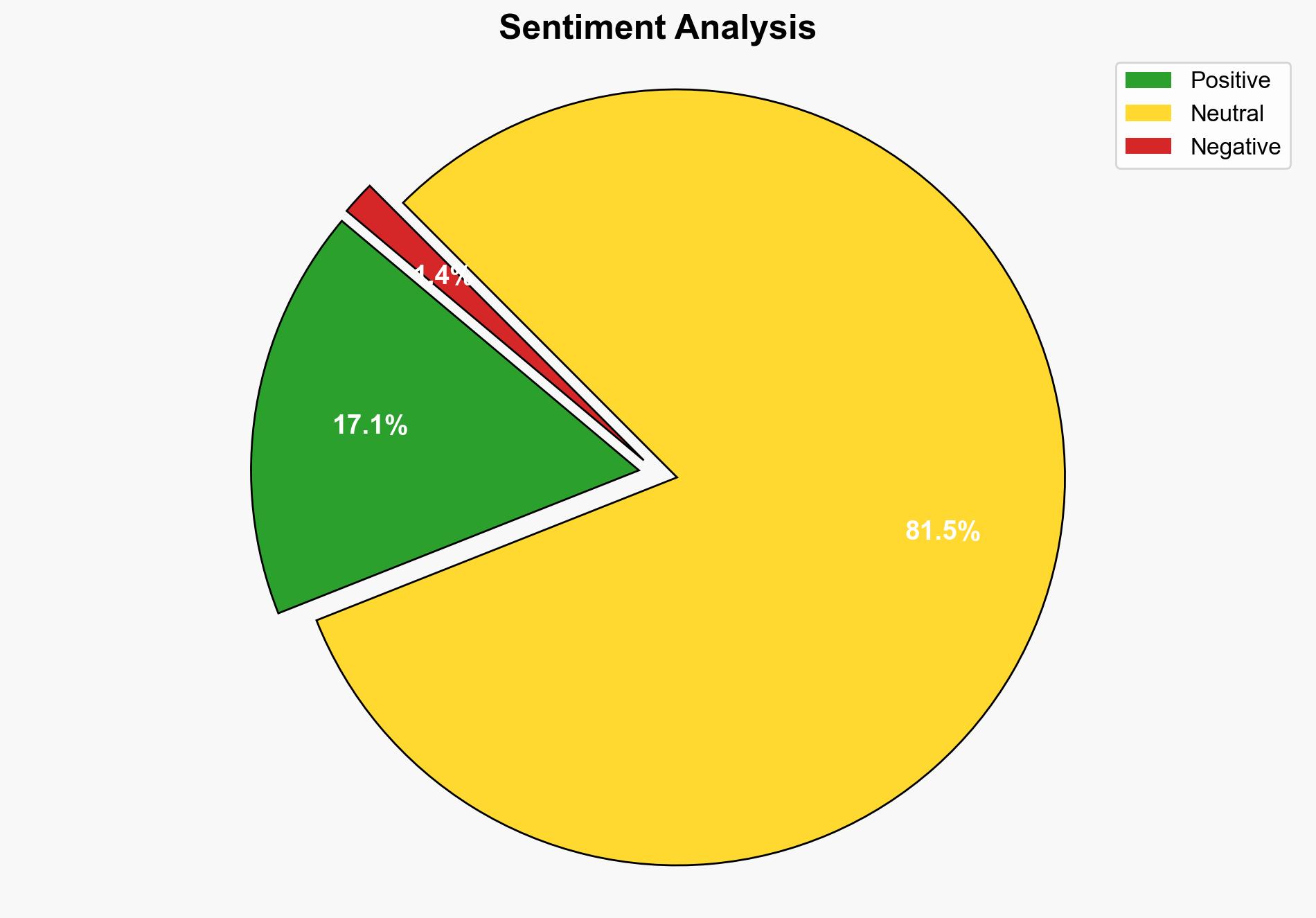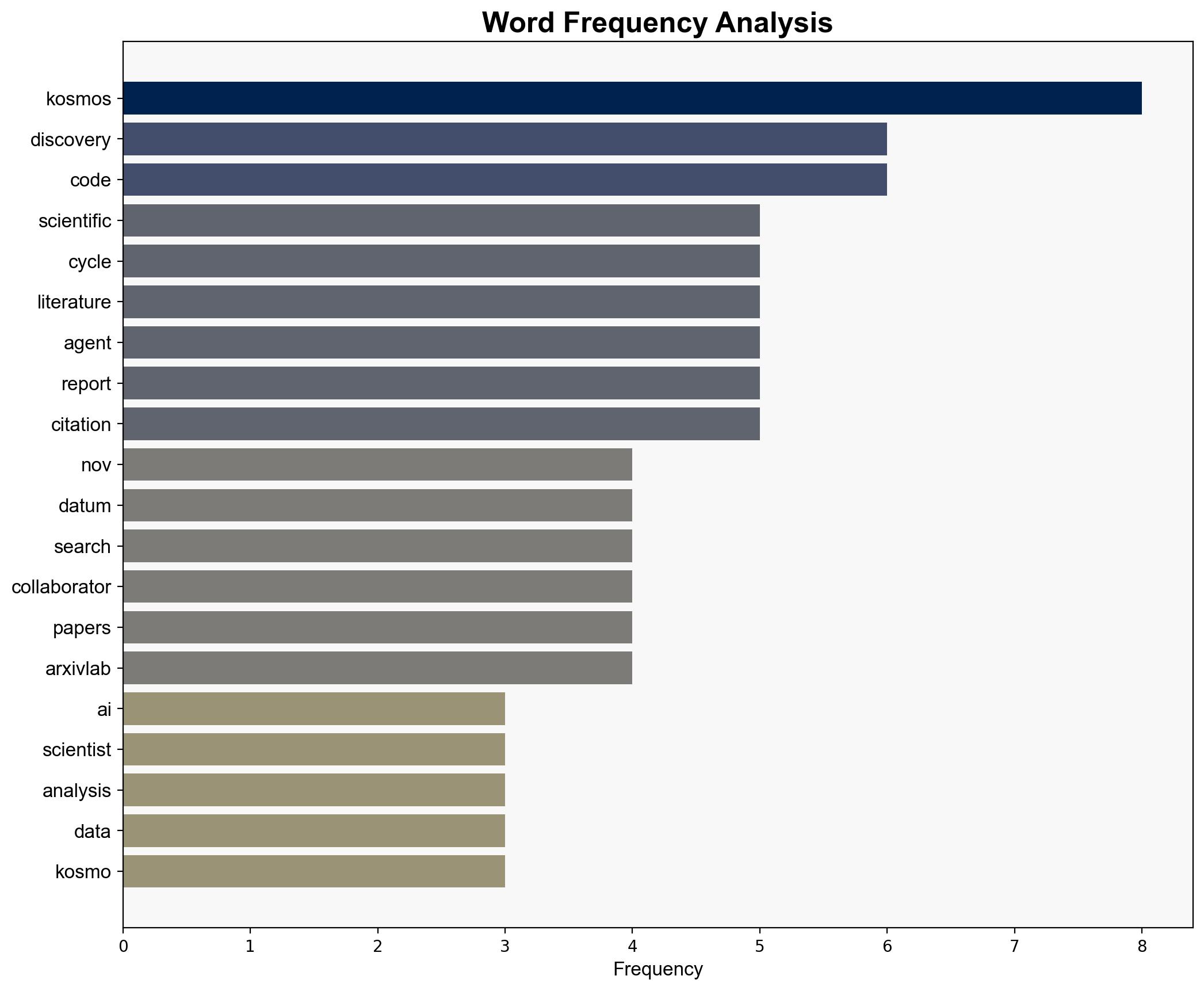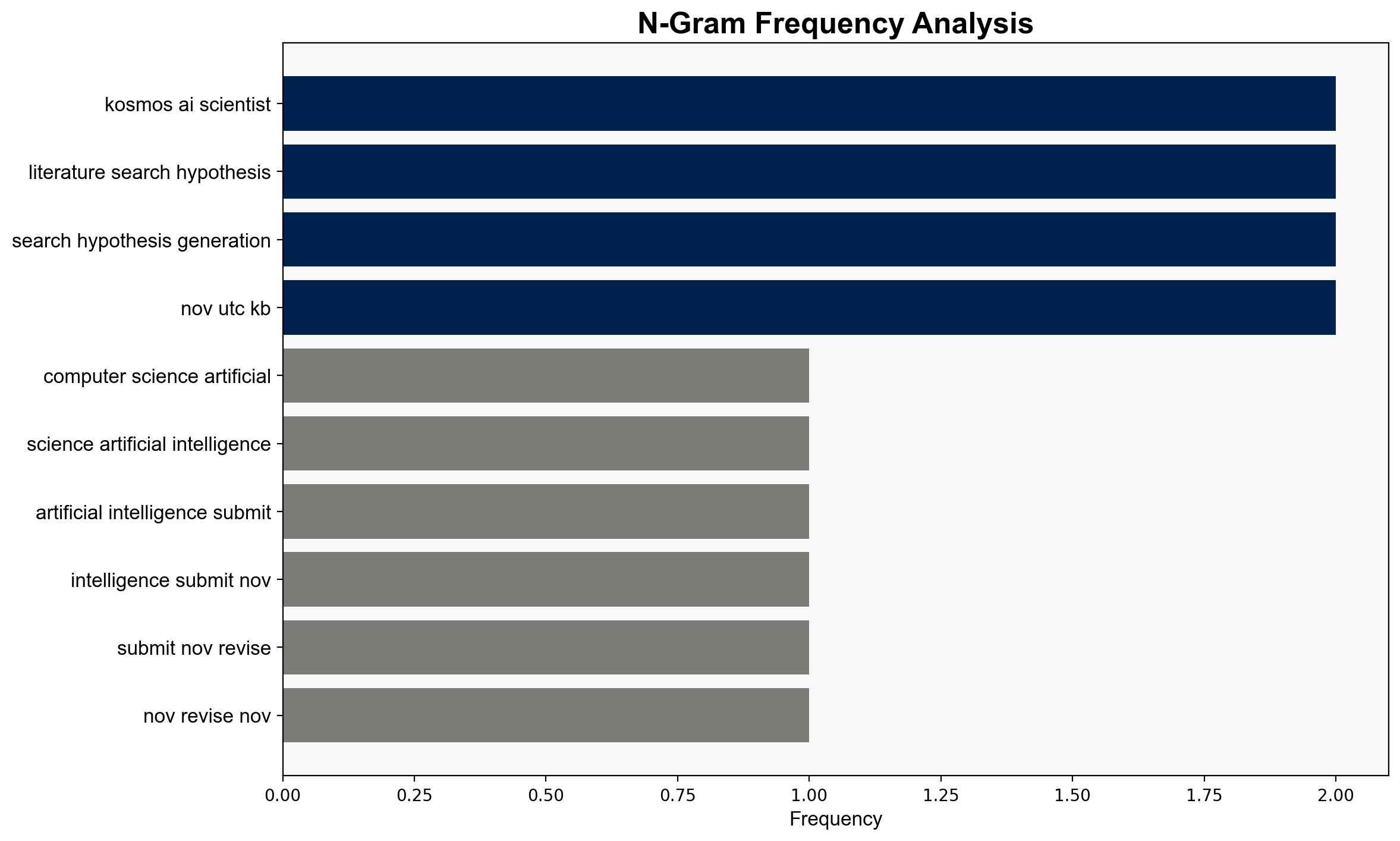Kosmos An AI Scientist for Autonomous Discovery – Arxiv.org
Published on: 2025-11-05
Intelligence Report: Kosmos An AI Scientist for Autonomous Discovery – Arxiv.org
1. BLUF (Bottom Line Up Front)
The most supported hypothesis is that Kosmos represents a significant advancement in AI-driven scientific research, capable of automating complex discovery processes across multiple disciplines. Confidence in this hypothesis is moderate due to the lack of independent verification and potential overstatement of capabilities. Recommended action includes monitoring further developments and validation studies to assess the true impact and reliability of Kosmos.
2. Competing Hypotheses
Hypothesis 1: Kosmos is a groundbreaking AI system that effectively automates scientific discovery, significantly reducing the time and resources required for research across various fields.
Hypothesis 2: Kosmos’s capabilities are overstated, and its actual impact on scientific discovery is limited by current technological constraints and the need for human oversight.
Using Bayesian Scenario Modeling, Hypothesis 1 is more supported due to the detailed description of Kosmos’s structured world model and its reported ability to perform tasks equivalent to months of research. However, the lack of independent validation and potential biases in reporting suggest caution in fully accepting this hypothesis without further evidence.
3. Key Assumptions and Red Flags
Assumptions include the belief that AI can fully automate complex scientific processes and that the reported findings are unbiased and accurately reflect Kosmos’s capabilities. Red flags include the absence of independent verification, potential over-reliance on AI without human oversight, and the possibility of selective reporting of successful outcomes.
4. Implications and Strategic Risks
If Kosmos is as effective as claimed, it could revolutionize scientific research, leading to rapid advancements in fields like metabolomics, neuroscience, and genetics. However, reliance on AI for critical research could introduce risks, such as data privacy concerns, cybersecurity vulnerabilities, and ethical issues regarding AI’s role in scientific discovery. Geopolitically, nations with access to such technology could gain significant advantages, potentially leading to imbalances.
5. Recommendations and Outlook
- Encourage independent validation studies to verify Kosmos’s capabilities and mitigate the risk of over-reliance on AI.
- Develop guidelines for ethical AI use in scientific research to address privacy and security concerns.
- Monitor developments in AI-driven research to identify potential geopolitical shifts and prepare for strategic implications.
- Best Case: Kosmos accelerates scientific breakthroughs, leading to significant advancements in health and technology.
- Worst Case: Over-reliance on AI leads to data breaches and ethical dilemmas, undermining trust in scientific research.
- Most Likely: Kosmos contributes to research efficiency, but human oversight remains crucial for validation and ethical considerations.
6. Key Individuals and Entities
Andrew White is mentioned as a key individual associated with the submission of the Kosmos project.
7. Thematic Tags
artificial intelligence, scientific research, technological advancement, data privacy, ethical AI





